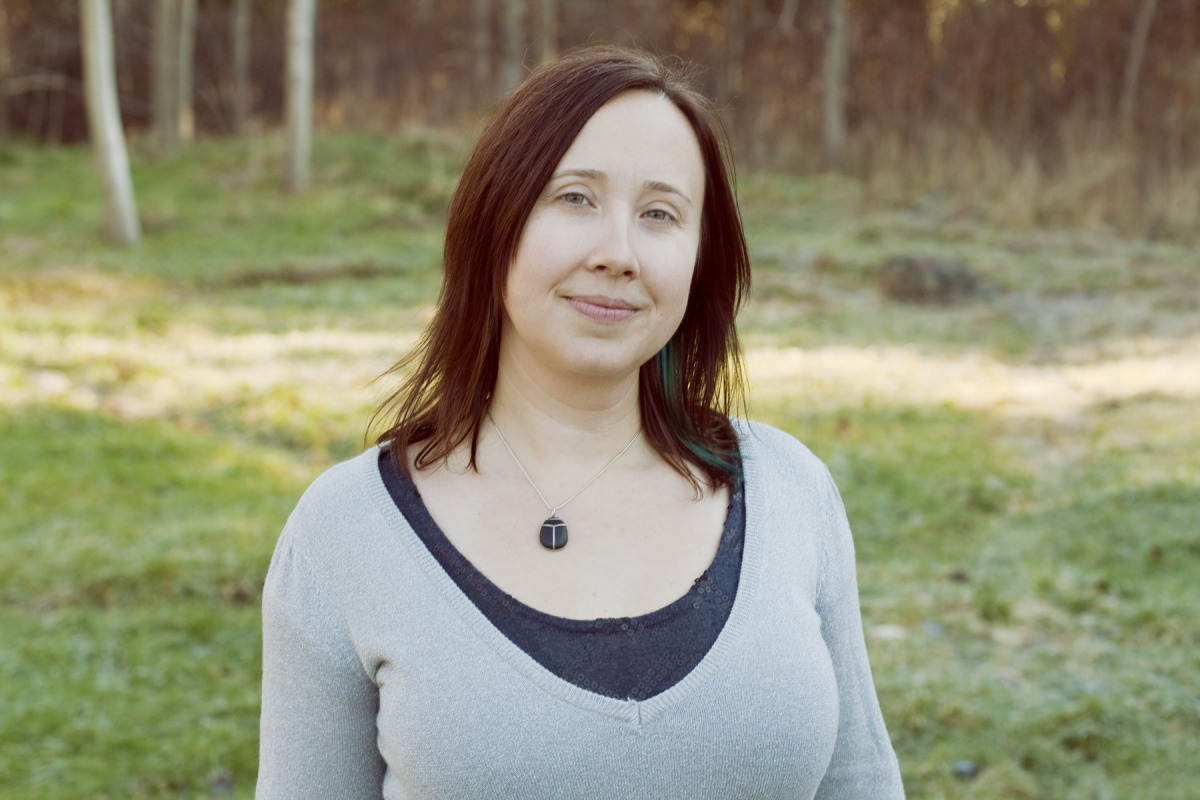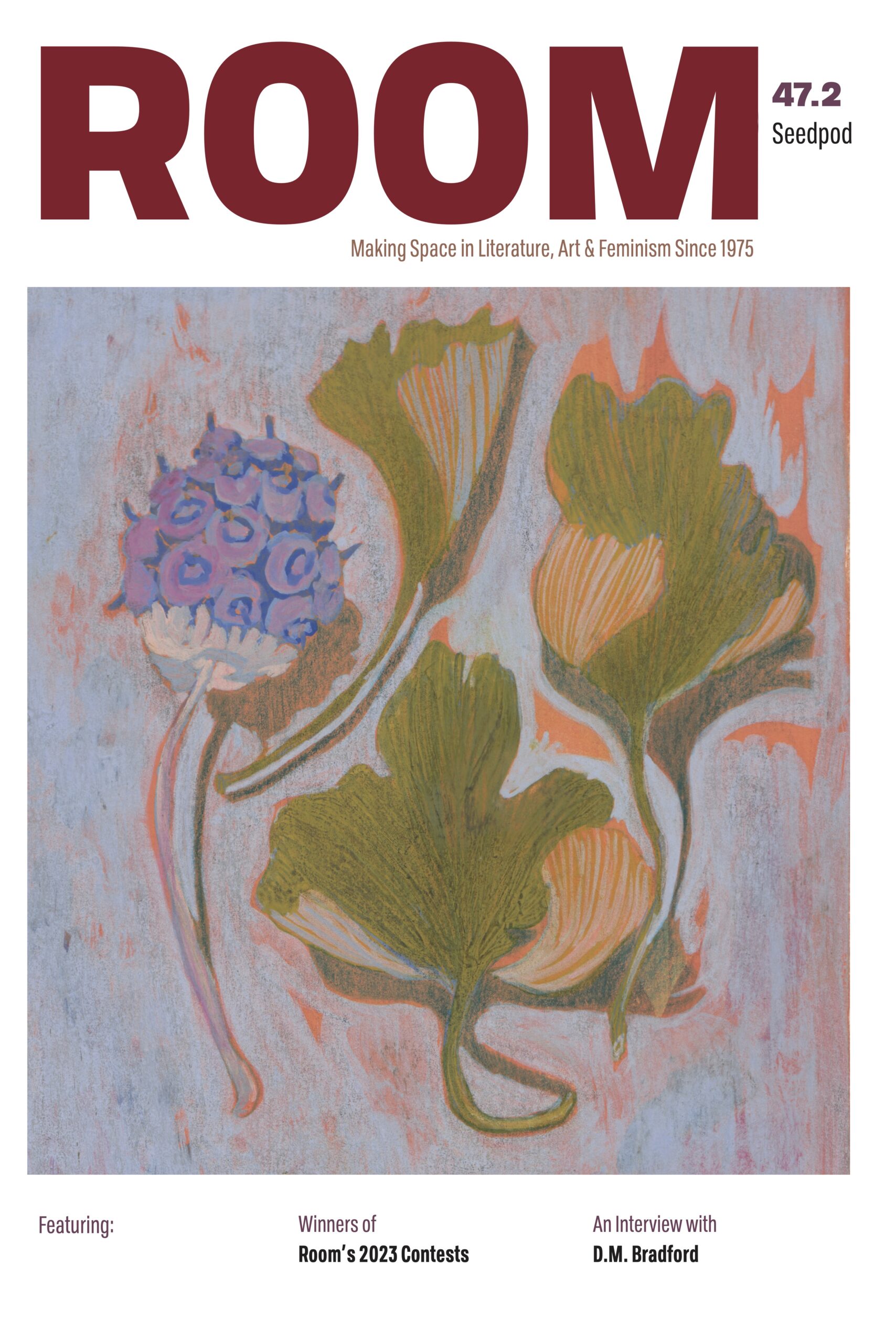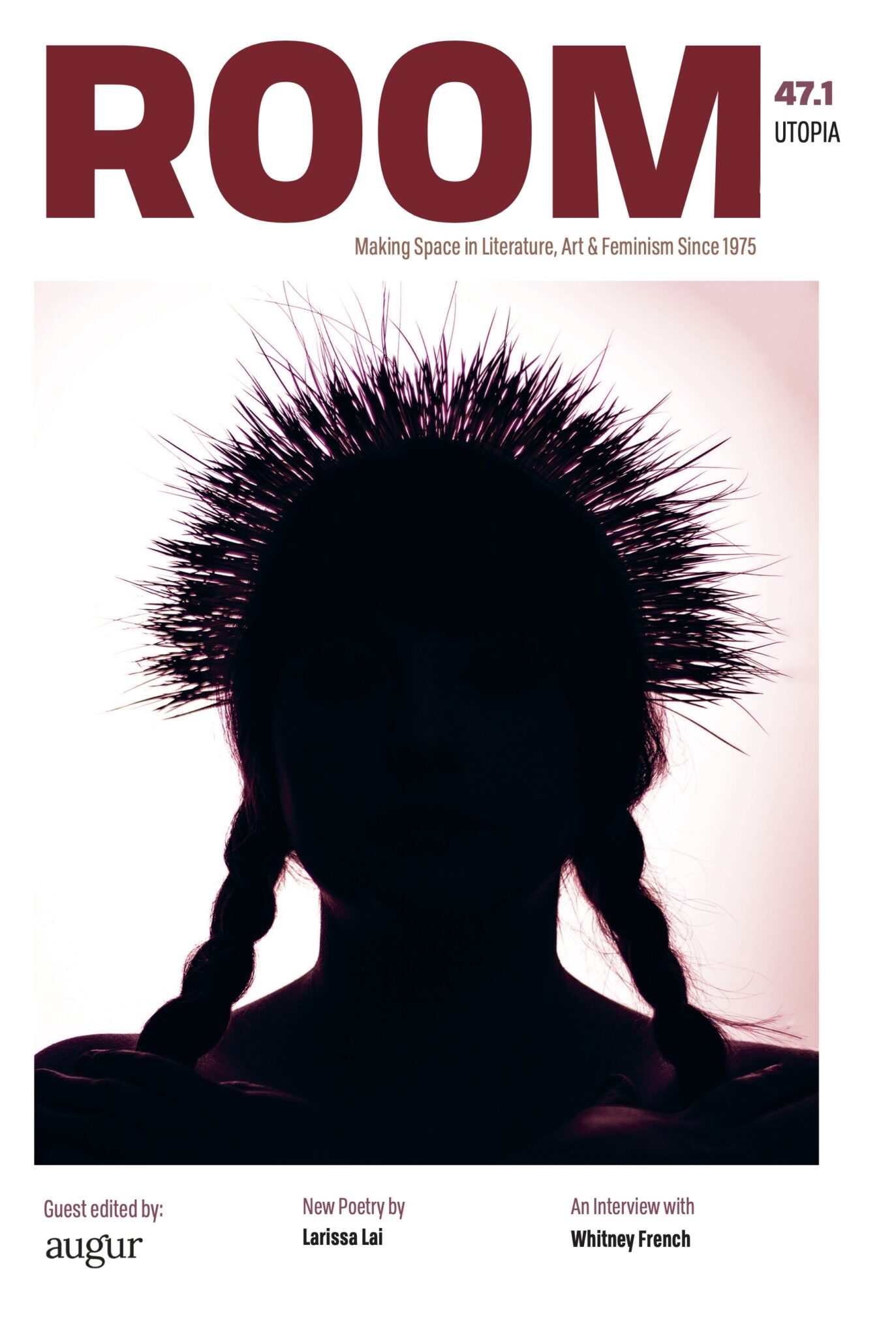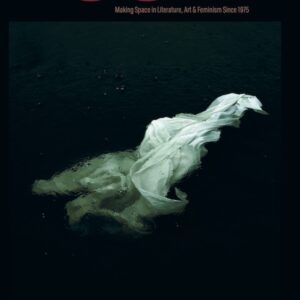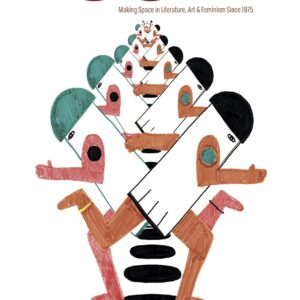We spoke with In Translation editor, Rachel Thompson about translation, her book of poetry, Galaxy and more.
We spoke with In Translation editor, Rachel Thompson about translation, her book of poetry, Galaxy, and more.
ROOM: How long have you been with Room’s editorial Collective, and why did you decide to join this specific publication?
RACHEL: I started volunteering with Room in 2010. I was working on putting shape to my poetry manuscript and loved that process. Putting poems, written over several years, into a book was very different from writing poetry, and I got a little hooked on this type of ordering and curating. I was looking for a chance to do more of this theme seeking, connecting diverse pieces into a whole, and I thought I would have the chance to do this at Room.
One of the great things about Room is that it really is a space for novices, both in terms of what we publish and our Editorial Board. I was fortunate to be mentored by other collective members, which eventually led to my first literary editorial experience with issue 36.1.
ROOM: What inspired you to choose the theme In Translation?
RACHEL: I was inspired by the contributions to Room for issue 36.1, Mythologies of Loss. I think because we explicitly made the call for submissions plural—mythologies versus mythology—we opened the door to diverse works, culturally and linguistically. As always, the writing shared with us was just stellar, but this issue sung with its smattering of languages: Algonquin, German, Spanish, French … and it took us all over the geographic map: on a shore in Nova Scotia, in a Japanese internment camp in B.C., on a trail on the Grand Canyon, in a bookstore in Valparaiso, on Garia Station Road in Kolkata, while locating us in a pretty specific emotional place: grief and loss. This time, I want to make an issue with an even greater range of linguistic, cultural, and sub-cultural landscapes, while keeping the emotional map uncharted.
ROOM: You published a book of poetry called Galaxy in 2011 with Anvil Press.
RACHEL: I did. I won a competition for publication held by Simon Fraser University. Gregory Scofield judged the poetry category, and he liked my work. I was really lucky to have been  encouraged by a lot of great writers, poets, and editors along the way. I think that’s another big reason why I joined Room, to pay forward some of the encouragement I received to other fledgling writers and poets.
encouraged by a lot of great writers, poets, and editors along the way. I think that’s another big reason why I joined Room, to pay forward some of the encouragement I received to other fledgling writers and poets.
ROOM: What motivated you to write poetry?
RACHEL: Like a lot of poets and writers, I need to write. I don’t think I’m unique in the publishing world in that I had a lot more books than friends as a child, so Walt Whitman, John Donne, both Margarets, and countless other poets and writers were my company growing up. I love poetry and lyric prose specifically, because the heightened language sings. In my editor’s letter for Room 36.1 I made allusion to Edward Hirsch’s statement about poetry speaking from one solitude to another, and that idea rings bells for me.
ROOM: What are your favourite translated works?
RACHEL: I love what Anne Carson did with Economy of the Unlost, and really everything she does with language. Of course, there’s Dante, Pablo Neruda … so many when you think about it, really. I’m reading Carmen Rodríguez right now, who I find very exciting because of her approach to translating herself. I have been reading some translations of Arabic short stories off and on. I could go on, but I’ll stop with recommending Little Theatres by Erín Moure, who we are fortunate to have share new work with us for 38.1.
By the way, the translation issue will not just be about linguistic translation. We’re also looking for work exploring the simplest definition of translation: conversions from one form into something else. I’m interested in this because of changes I have experienced in a multilingual, cross-cultural way, but those conversions don’t need to be steeped in any language but (the very best) English to suit the issue.
ROOM: You are living beside the Red Sea in Egypt. How does translation reflect your life?
RACHEL: The other day I was in my local Italian (yes, Italian) coffee shop and overheard a discussion about the Arabic for “Slowly, slowly” (Chewaya, chewaya) versus the Italian (Piano, piano). I speak a little more Arabic than Italian, and all I really know of Italian are foods and some musical terms, so I only just got the gist of it. Yet overhearing the conversation charged me up. There’s something about people talking about languages and comparing vocabularies that I could listen to for hours. Where I live, you can hear Ukrainian, Russian, Italian and Arabic daily. I like this, because I can only speak French and a little Spanish in addition to English, so this forces me to keep plugging away at Arabic. Anyway, I think something about comparing vocabularies and expressing yourself using the correct word is also part of my love of poetry.
ROOM: What advice can you give to bilingual or multilingual writers in regards to writing for a specific audience?
RACHEL: I don’t think I’m equipped to give advice, as I don’t write in a language other than English. I am a gleeful audience member of translations and multilingual work. I hope our issue will demonstrate a playful approach to translation and multilingual writing, so my only advice would be to encourage writers to polish up their work and submit to us before July 31.
